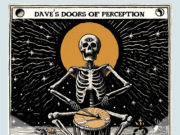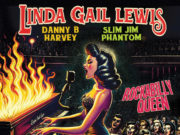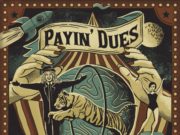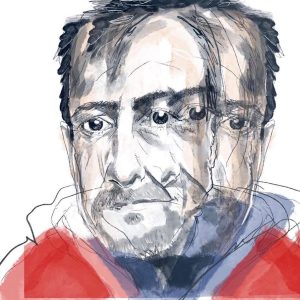 In the salad days of my journalism career, I was a newspaper editor in rural Renfrew County, Ont. — in a community which was home to many American expatriates.
In the salad days of my journalism career, I was a newspaper editor in rural Renfrew County, Ont. — in a community which was home to many American expatriates.
On the 30th anniversary of Woodstock I had no trouble finding people to talk to who had actually been to the event — one of them had even been a member of the Merry Pranksters, who provided security. Basically, when the festival ended he packed up and drove north to a large property outside of Wilno to live off the land, and continues to do so to this day.
So many of these people became great, lifelong friends of mine. They left the U.S. in search of a simpler, subsistence lifestyle or to avoid being drafted. One of the people I got to know very well was actually an army deserter. Rick Schmidt was so proud to be from Detroit. Trust me — he and I made up the rhythm section of a local R&B band for a while. A Detroit guy knows how to play Grapevine. That’s how I got to know him — that, and he also ran the dump and was the fire chief. At the dump we called him The Pilot, because whenever we asked what to do with the stuff we brought there — a fridge, a sofa, a woodstove, old rugs — from his lawn chair he would just say “Pile it there,” and not look up from his book.
Rick was drafted. He actually reported to Fort Knox for training and figured he’d have a good go of it in ‘Nam as a radio operator. Until he found out radio operators were on the front line. So, he got the heck out of there and made his way to Toronto and eventually the Madawaska Valley where he found love, musicians and a way of life which suited him. But here’s why I’m mentioning Rick — it’s about what he left behind. Not just his family, but also a gig in a pretty good band: Rare Earth. If Rick hadn’t got drafted, that could have been his bass on I Just Wanna Celebrate.
I never met him, but while I was working up there, I heard former Buffalo Springfield bassist Bruce Palmer had a place in the rural community of Maynooth. A Canadian citizen, his time in the American music business was tumultuous. He had legal problems and drug problems and visa problems. He got canned from the band twice, briefly played bass for Crosby, Stills, Nash & Young, made a freaky outsider solo album and disappeared until he resurfaced as Neil Young’s Trans-era bass player. He died in Belleville in 2004.
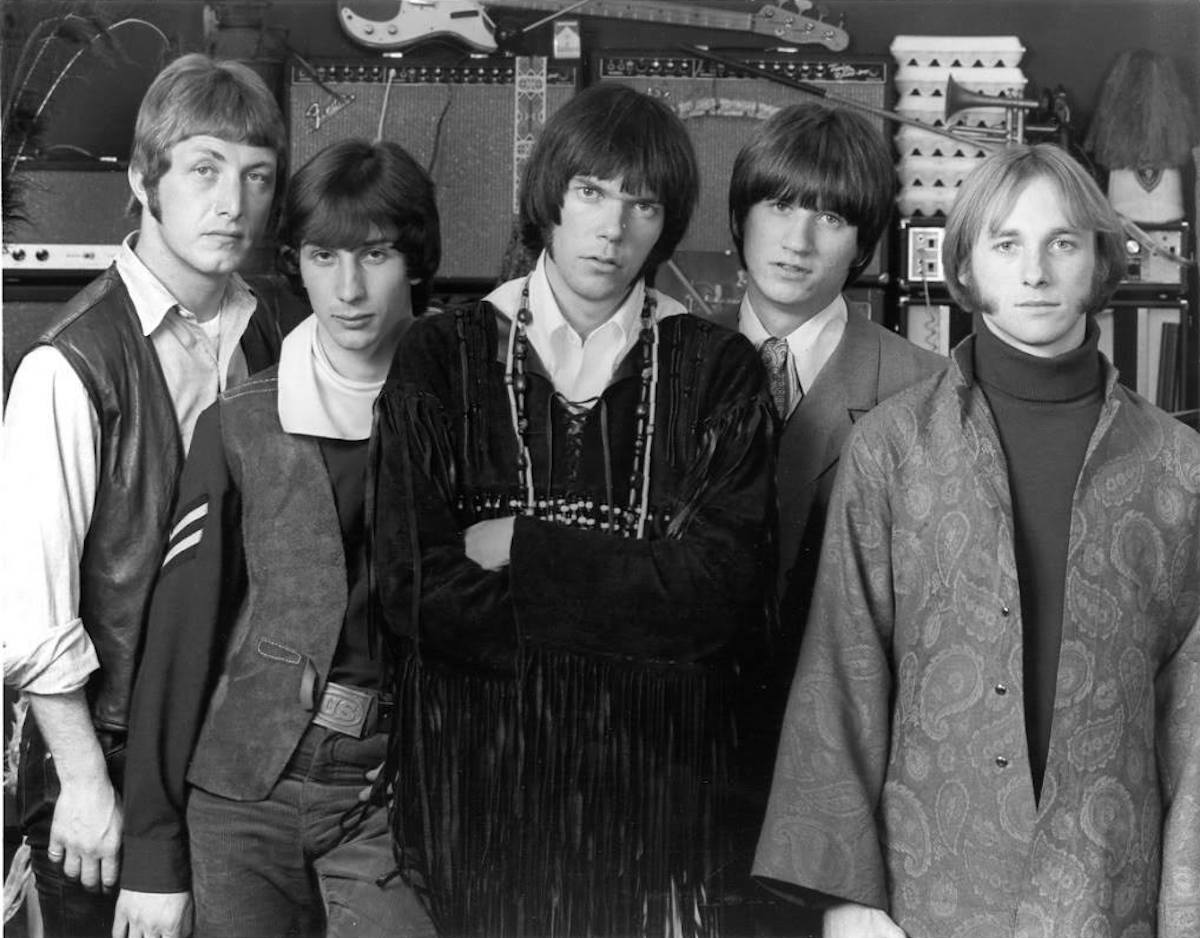
So I thought I’d look at a few of these mainstream musicians who pulled a disappearing act. We don’t have to go far, in fact — we’ll stick to Belleville for a second. That’s where I went to college to learn to be a photojournalist. One day, walking up main street, I spotted a 1960s Rickenbacker bass hanging in a jewelry store window. I went in and asked about it and it turned out to belong to the owner’s husband — Pete Quaife.
What? Yep. The original bass player from The Kinks somehow wound up living in the rural community of Cannifton, outside of Belleville. He quit The Kinks in 1969 and started a country-rock band with a bunch of Canadians before leaving the business altogether. Trained as a commercial artist, he moved to Belleville in 1980 and worked in the industry. He dabbled in the local scene, performed an encore with The Kinks in Toronto and attended the band’s Rock And Roll Hall Of Fame induction. He and his wife divorced in 2005 and he moved to Denmark to live with his girlfriend. He died in 2010 after struggling many years with kidney disease.
Sometimes they come back, though. Brian Wilson did. The Beach Boys’ principal songwriter became a recluse in the 1970s as he dealt with and was dubiously treated for mental illness. It started in 1967 when he had a recording studio built in his new house. He stayed reasonably productive until his admission to a mental hospital in 1968. After this, we enter the bathrobe period in which Wilson would occasionally check in with band sessions in his home studio, but mostly stayed in his bedroom. The home studio was eventually dismantled in 1972 and he briefly relocated to Holland with the band to record the album of the same name.
Wilson’s father died in 1973 and it sparked an even deeper reclusive period until 1975 which saw the former teen sensation balloon to 240 lbs. Threatened with divorce, he began to turn things around and started making regular concert appearances with The Beach Boys in 1976 and returned to a leadership role in the studio. It was short-lived. There was a problematic tour of Australia in 1978, a drug overdose and the seemingly inevitable divorce. He finally emerged from years of curious therapy in 1983 and began playing with the band again, and worked on their 1985 album prior to his big comeback, his self-titled solo album in 1988.
I’m still hopeful for Sly Stone. The legendary funk songwriter, multi-instrumentalist and bandleader’s drug problems destroyed his career. The quality of his work dropped off by the mid-’70s and was followed by a period of here I am/where’d I go? There were drug busts, collaborations and sporadic appearances and cameos.
By 2009 a documentary appeared detailing his financial nightmare, caused by selling off his catalogue and years of drug addiction. By 2011 he was living in an RV in a suburban neighbourhood, but was gradually working his way back into prominence, including a new album I’m Back! in 2011.
Unlike my friend Rick, who tried to disappear so he could avoid military service, legendary big band leader and trombonist Glenn Miller sought military service and actually did disappear. Miller quit show business at the peak of his career and in 1942 joined the army so he could form a band of servicemen and women and entertain troops. At the time, he had been making around $20K per week. In 1942! That’s close to $400K per week these days.
On Dec. 14, 1944 Miller was booked on a flight to France from England for a concert. He was on standby for an earlier flight, which was cancelled — and so was his regular flight. Miller was offered an unregistered flight with a friend and neither he nor the plane were ever seen again. The day after his flight, the Battle Of The Bulge broke out, so nobody even noticed he was missing for three days.
Fleetwood Mac had three members disappear from public life. Founder Peter Green quit the band in 1970 and did a few guest appearances until the mid-’70s, when drug addiction and mental illness took him away. He was given electro-shock treatment for schizophrenia and didn’t manage to return to working until 1979. He released a handful of meh solo albums before finally starting the prolific Peter Green Splinter Group in the late ’90s. I actually caught them at the Fleadh Festival in London in 2002. Albatross made me cry.
Bandmate Jeremy Spencer suddenly quit the band in 1971, actually causing Fleetwood Mac to bring Green back to help them finish their tour. He did so on the condition that he be credited as Peter Blue and they wouldn’t perform any of his old Mac songs. He passed away in July 2020. Spencer, meanwhile, joined the Children Of God cult and moved to the U.S. with his wife. He’s made music with other cult members but has maintained contact with his former Fleetwood Mac bandmates, even performing at a Peter Green tribute show with them in 2020.
Mac guitarist Danny Kirwan was only 18 when he was recruited into the band by Green. He was never comfortable with the pressure of being in a famous act. By 1972, struggling with substance abuse to cope with nerves and mental illness, his frequent angry outbursts got him fired. He let his playing ability deteriorate and his marriage ended in divorce. By the 1980s he was homeless. He last spoke publicly in the mid-’90s and passed away in 2018.
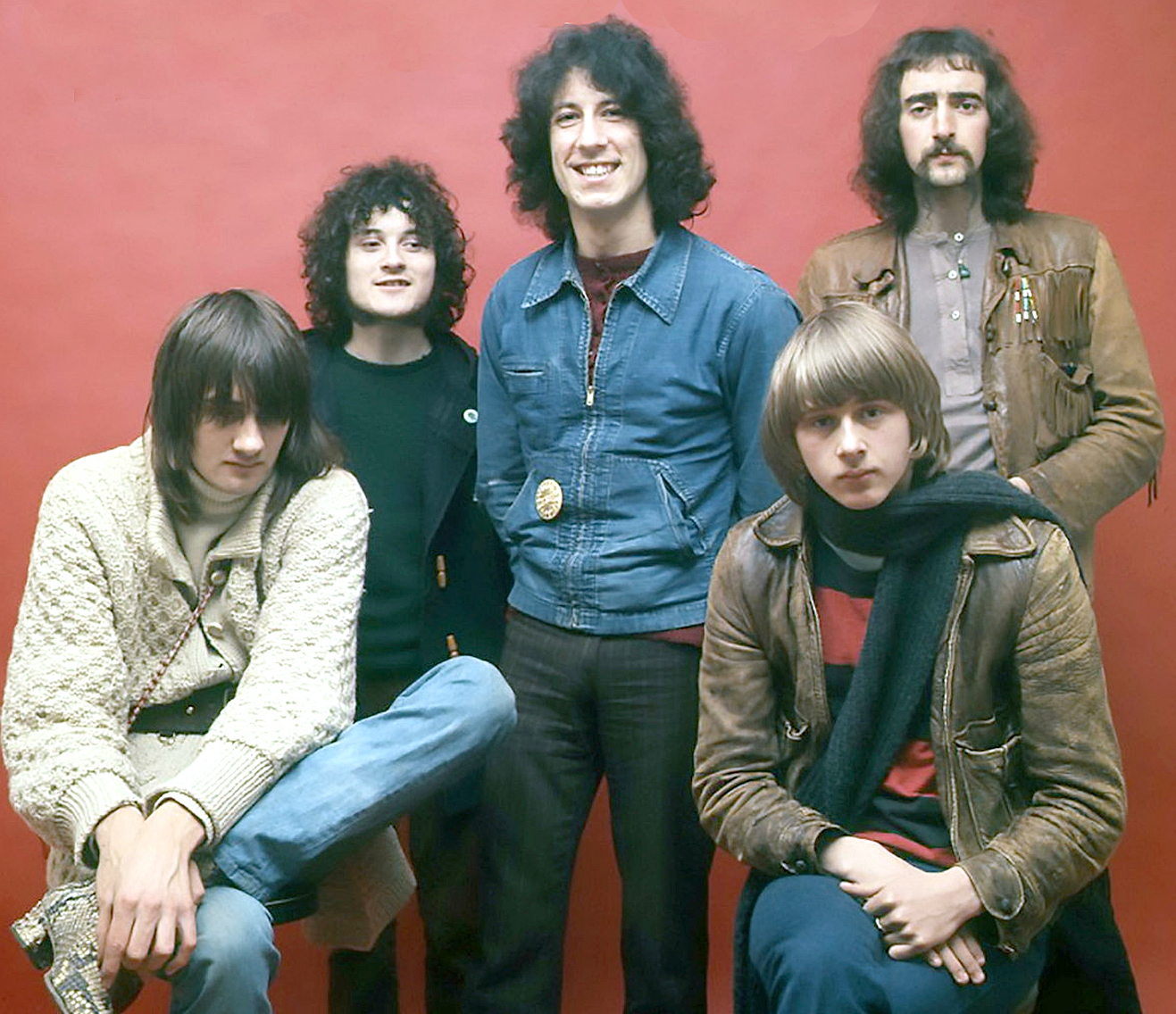
Spencer isn’t the only musician who found god and disappeared — Wings drummer Joe English lives in North Carolina as a member of the insular Word Of Faith Fellowship. He doesn’t play music anymore, talk about Wings, or have any contact with Paul McCartney. English was in Wings from 1975’s Venus & Mars through Speed Of Sound and Wings Over America in 1976. He quit, moved to the States, joined a prog band and then became a born-again Christian, playing in religious groups. He joined Word Of Faith in 1990.
New age musician Enya (Enya Patricia Brennan) split from public life almost as soon as she scored a hit with the ethereal Orinoco Flow (Sail Away). The former member of the family band Clannad is the top-selling Irish solo artist of all time. But, she lives alone with her cats in her ultra-secure Manderley Castle in County Dublin. It even has a safe room, from which she called police when the mansion was broken into and two of her staff assaulted in 2005. She doesn’t do live shows.
A few months ago, Spotify gave me a suggested song based on my listening history — Plain As Your Eyes Can See by Jim Sullivan. I’d never heard of him before, so I started researching him and his debut album U.F.O. from 1969. His music is stunning, but not terribly rich with commercial appeal. In 1975 he decided to leave Los Angeles for Nashville and better his chances. He never got there. The last anyone ever saw of him was in Santa Rosa, New Mexico, where he checked into a hotel but appears to have not slept there. Instead he went out driving. His car with all his stuff was found abandoned at a ranch outside of town. Of course, people love to believe he was abducted by aliens. And, really — who knows?
Similarly, nobody knows what happened to Manic Street Preachers guitarist Richey Edwards. I suppose you could say he’s a member of the 27 club. That’s how old he was when he disappeared on Feb. 1, 1995. Instead of going to the airport for the planned trip to America to promote the new album, Edwards drove home to Cardiff, unloaded his ID, passport and cards. He was never heard from again. Two weeks later his car was found at a service station.
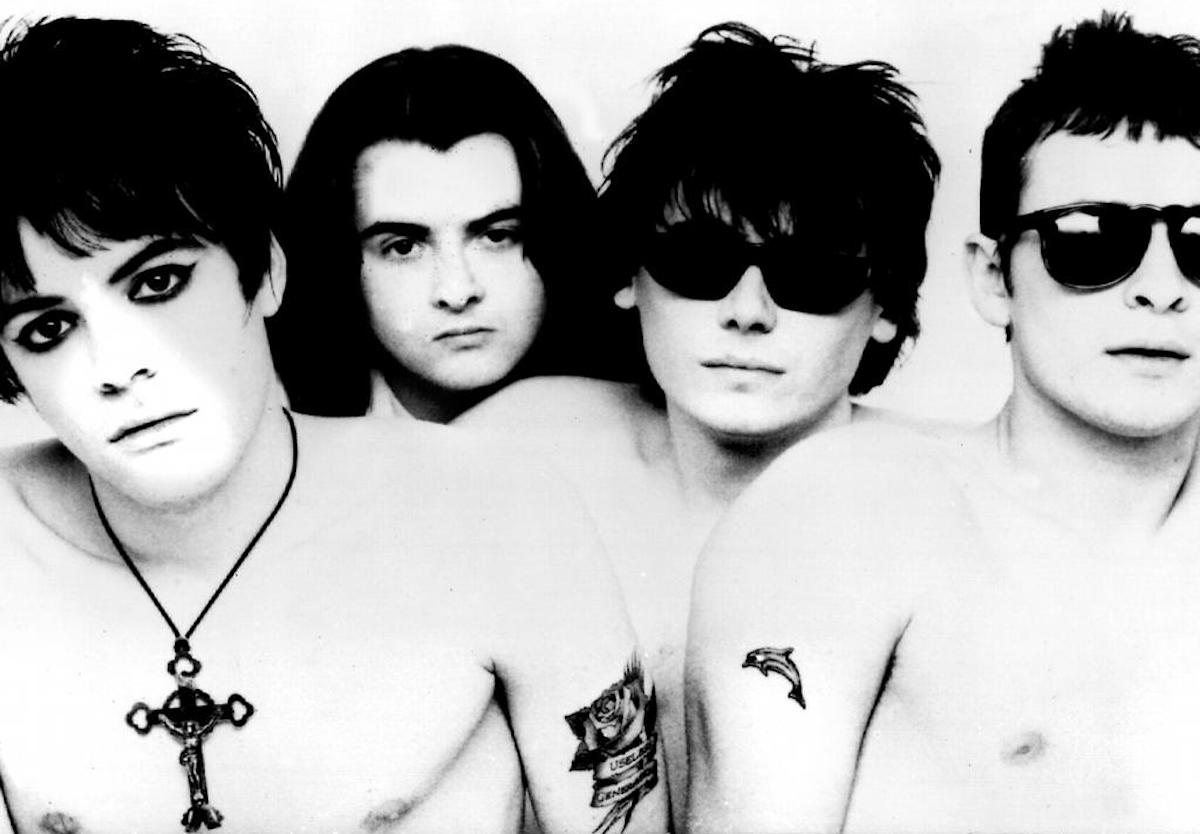
Canadian rapper DY (Forrest Schab) was planning to take a trip to Mexico when he disappeared in August 2010. It’s not known if the rapper — whose acronymic stage name stood for Die Young — ever went because he’s not been seen or heard from since. His disappearance wasn’t officially announced until November 2010.
I remember seeing an interview with Grace Slick after Starship scored a major hit with We Built This City in 1985. She told the interviewer that she seemed to enjoy every second decade, preferring the ’80s to the ’70s. So, perhaps it shouldn’t have come as a shock that she retired from music in 1989, following a reunion with her Jefferson Airplane bandmates of the 1960s. She now works as a painter.
Her one-time Airplane bandmate Alexander “Skip” Spence also fell into obscurity, but courtesy of drugs and mental illness like so many others (late Pink Floyd founder Syd Barrett, who moved home to Cambridge in the late 1970s and changed his name back to Roger). Spence played drums on the first Jefferson Airplane album and then went on to be a major part of San Francisco’s Moby Grape. And then his mental state deteriorated as he took harder and harder drugs — eventually leading to an incident where he attacked a bandmate with a fire axe and landed in an asylum. It’s after this he recorded his legendary, haunting outsider solo masterpiece Oar. Legend has it that he overdosed on heroin in the ’70s and wound up in the morgue with a toe tag and all, before suddenly waking up and asking for a glass of water. He died of lung cancer in April 1990, as a ward of the state of California. His addictions and mental illness prevented him from ever resuming his career.
Since Freddie Mercury died, Queen bass player John Deacon has only played with the group three times, preferring to be a recluse. The two men were quite close, but Deacon only speaks to his former bandmates about business matters now.
You can put Deacon in a category with former White Stripes drummer Meg White: Musicians we’d love to have around again. Meg suffers from anxiety and had all the live shows she could stand by 2007. The Stripes cancelled a bunch of tour dates and played their last two gigs — the first a performance on the last episode of Late Night With Conan O’Brien on Feb. 20, 2009. The second was at the premiere of their film Under Great Northern Lights at the Toronto International Film Festival in September 2009. The band officially announced their breakup in 2011. Meg now considers herself retired.
I just don’t know what to do with myself.
• • •
Area Resident is an Ottawa-based journalist, recording artist, music collector and re-seller. Hear (and buy) his music on Bandcamp, email him HERE, follow him on Instagram and check him out on Discogs.


